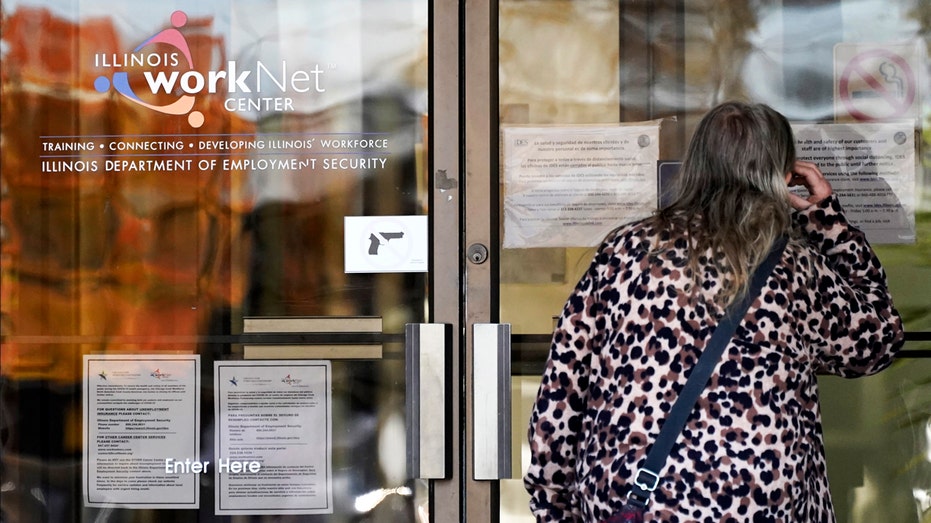Democrats unveil bill to remove taxes on some unemployment aid
Unemployment recipients could be in for a surprise tax bill this spring
Democrats unveiled a bill this week aimed at providing tax relief for the millions of Americans collecting unemployment benefits last year — and who could face a surprise tax bill this spring.
Sen. Dick Durbin, D-Ill., and Rep. Cindy Axne, D-Iowa, introduced a bill on Tuesday that would waive taxes on the first $10,200 in unemployment benefits that individuals received last year. Americans who received jobless aid through state and federal programs would qualify for the relief, the lawmakers said in a news release.
MILLIONS OF AMERICANS RECEIVING UNEMPLOYMENT AID COULD FACE SURPRISE TAX BILL
"Families across the country are struggling to keep a roof over their head, food on the table, and to pay for health care and other necessities," Durbin, the No. 2 Senate Democrat, said. "As we grapple with the economic pain of this pandemic, the bill I’m introducing today with Rep. Axne would provide tax relief to unemployed Americans so they can spend their benefits supporting their families and their communities."
Unlike the two stimulus checks delivered as part of a broader coronavirus relief measure, unemployment benefits are taxable at the federal level and by most states (California, New Jersey, Oregon, Pennsylvania and Virginia are the only ones to completely exempt it), meaning recipients could wind up with a tax bill next year, even though they lost their job. You do not have to pay Social Security and Medicare taxes on your unemployment benefits.

A woman checks information as information signs are displayed at IDES (Illinois Department of Employment Security) WorkNet center in Arlington Heights, Ill., Nov. 5, 2020. (AP Photo/Nam Y. Huh) (AP)
"This year there is real potential for refund shock," said Mark Steber, chief tax information officer at Jackson Hewitt. "A large number of people receiving unemployment benefits don't know that the benefits are taxable, that taxes are not automatically withheld, or that unemployment pay can impact other tax credits."
BIDEN'S COVID RELIEF PLAN COULD SEND MONEY TO WELL-OFF AMERICANS WHO WON'T SPEND IT
Unemployment benefits vary by state, but the $2.2 trillion CARES Act signed into law at the end of March sweetened the aid, giving beneficiaries an additional $600 per week through the end of July. The average laid-off worker was receiving about $930 per week in benefits before the boosted aid expired, prompting President Trump in August to issue an executive order partially restoring the supplement at $300 a week.
Congress also passed a $900 billion coronavirus relief package this week that would extend jobless aid by $300 a week through mid-March; however, those benefits did not kick in until the beginning of January.
A recent survey conducted by Jackson Hewitt Tax Service found that 38% of Americans receiving benefits were unaware that the money was taxable – and nearly two-thirds of those individuals had not set aside or withheld money from the payment for their 2020 income taxes.
CLICK HERE TO READ MORE ON FOX BUSINESS
The total amount of income you receive and your filing status will determine whether or not you need to file a tax return. There are roughly 18.3 million Americans receiving jobless aid, according to recent jobless claims data published by the Labor Department.
During past recessions, Congress has passed legislation providing tax relief to unemployed Americans. In 2009, lawmakers waived taxes on up to $2,400 in jobless aid.
A spokesperson for Axne told Bloomberg that the legislation is estimated to cost about $30 billion, although it has not been officially reviewed by the Congressional Budget Office. About 40 million Americans are projected to be eligible for the relief.




















